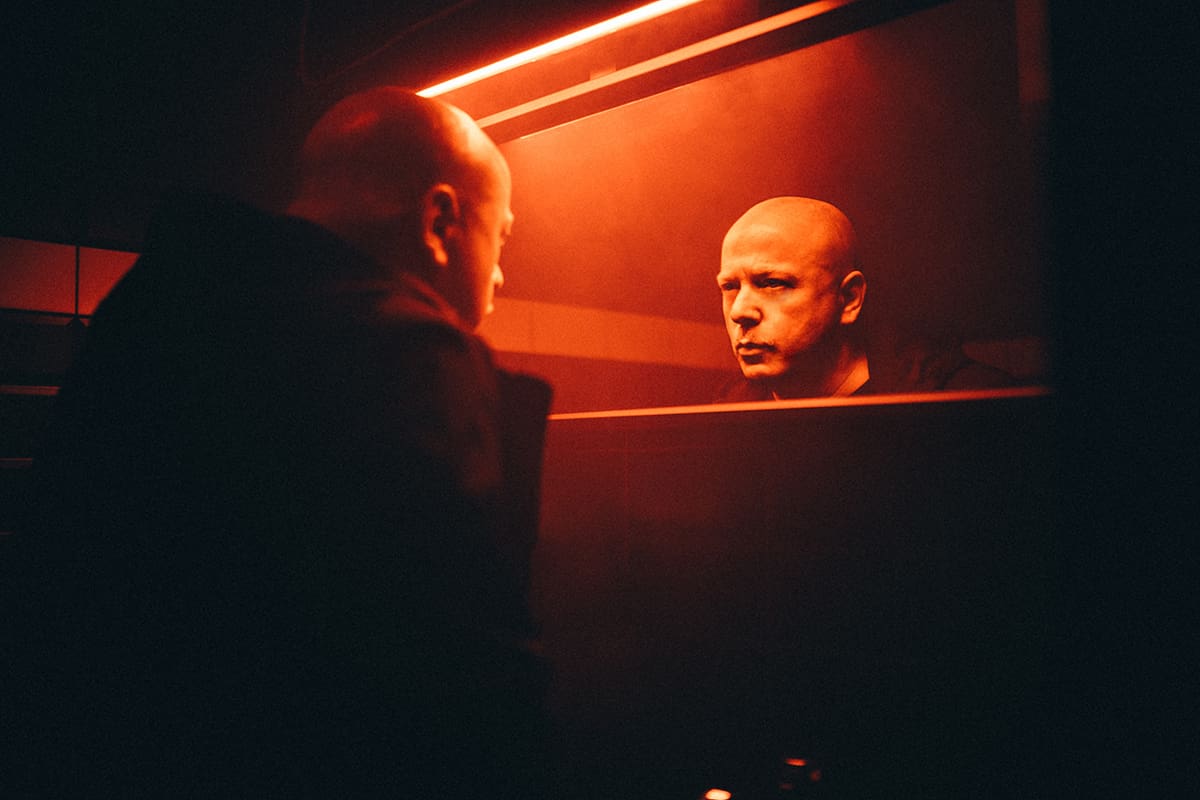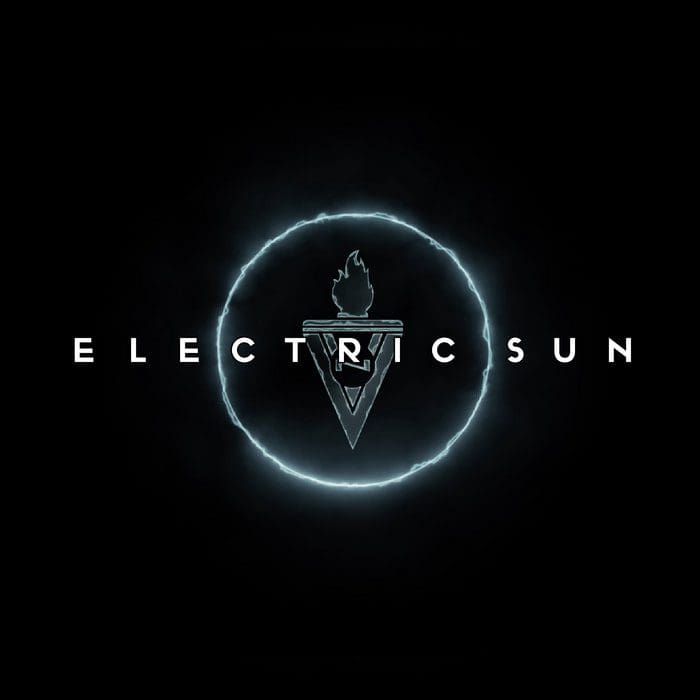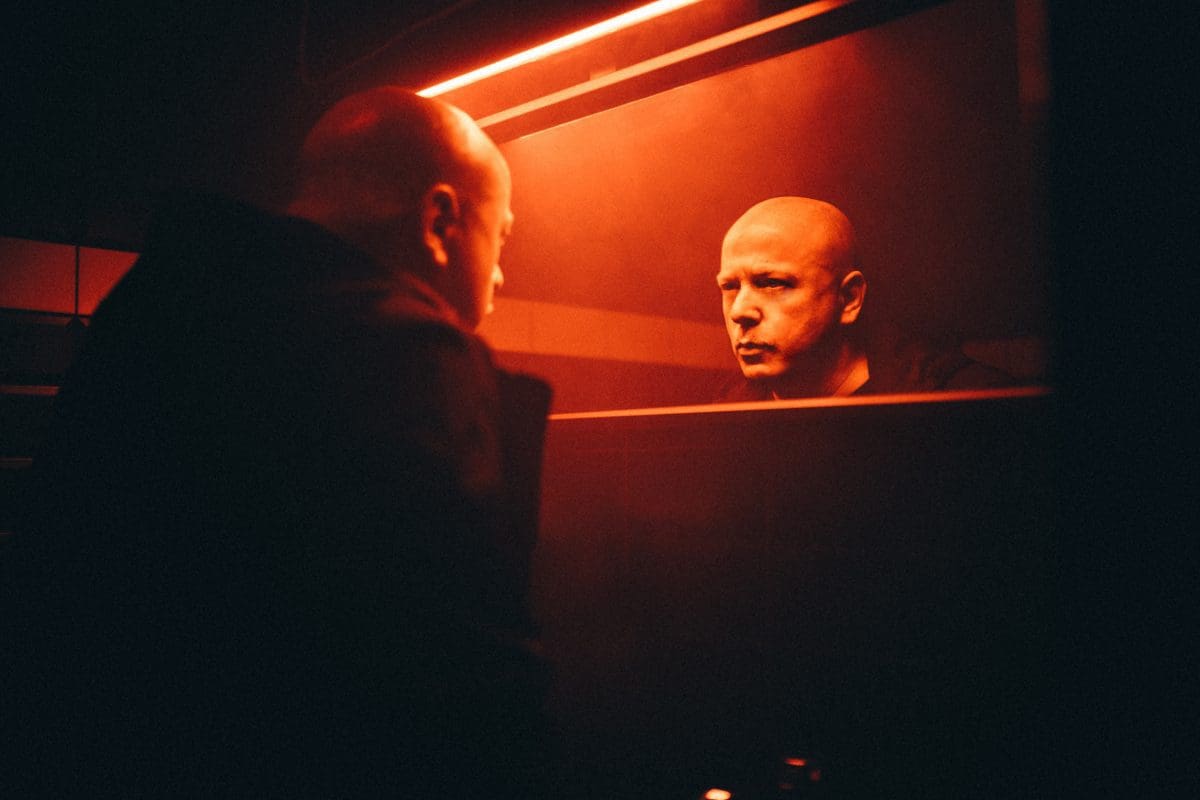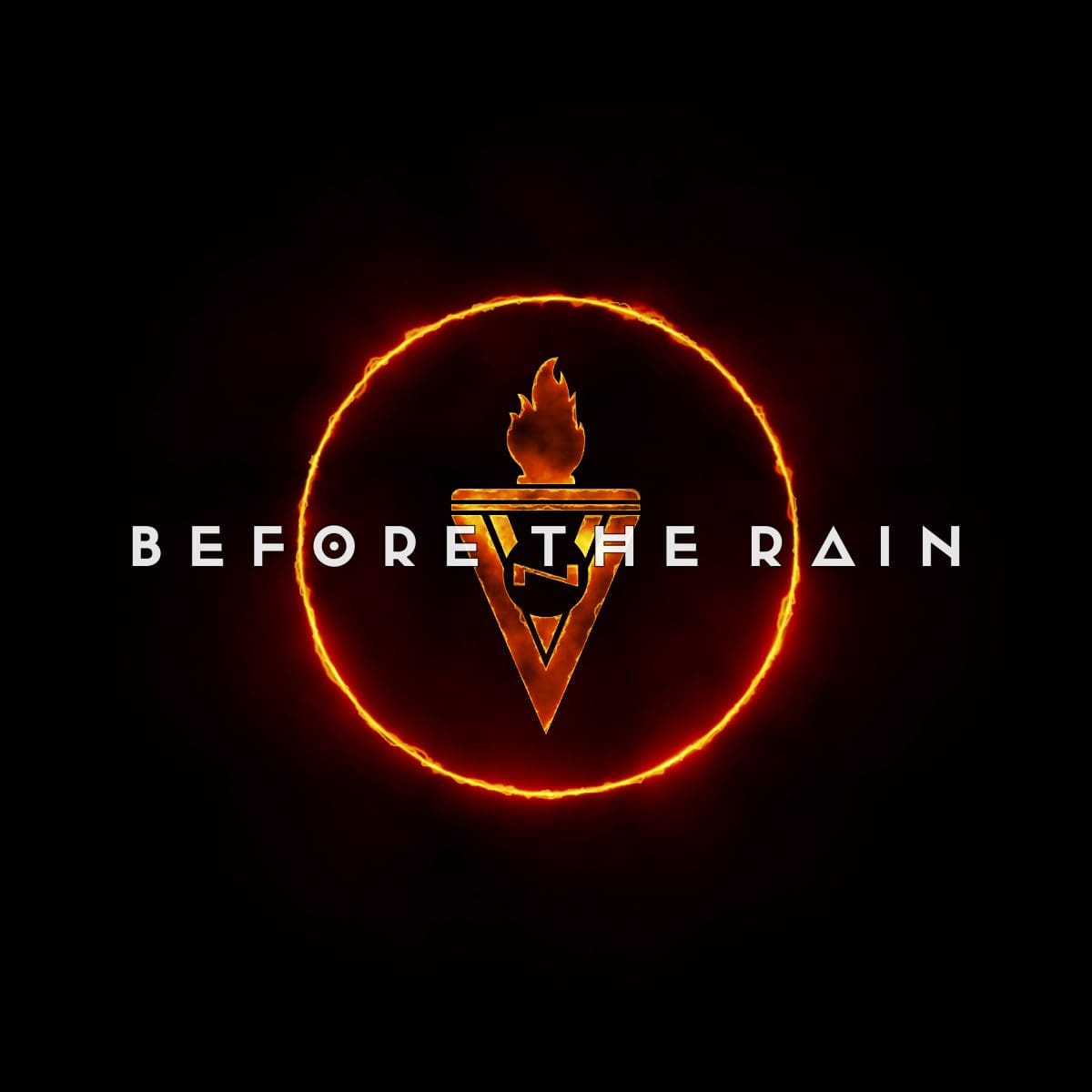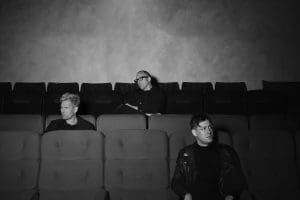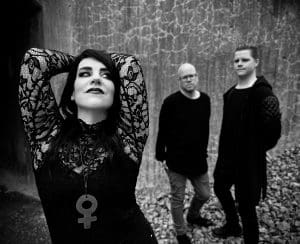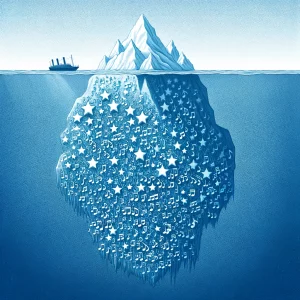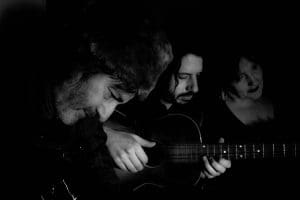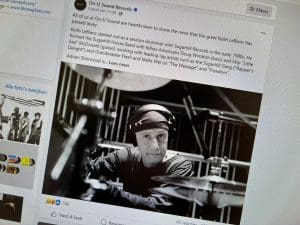VNV Nation interview: ‘Life goes on, the world goes on’
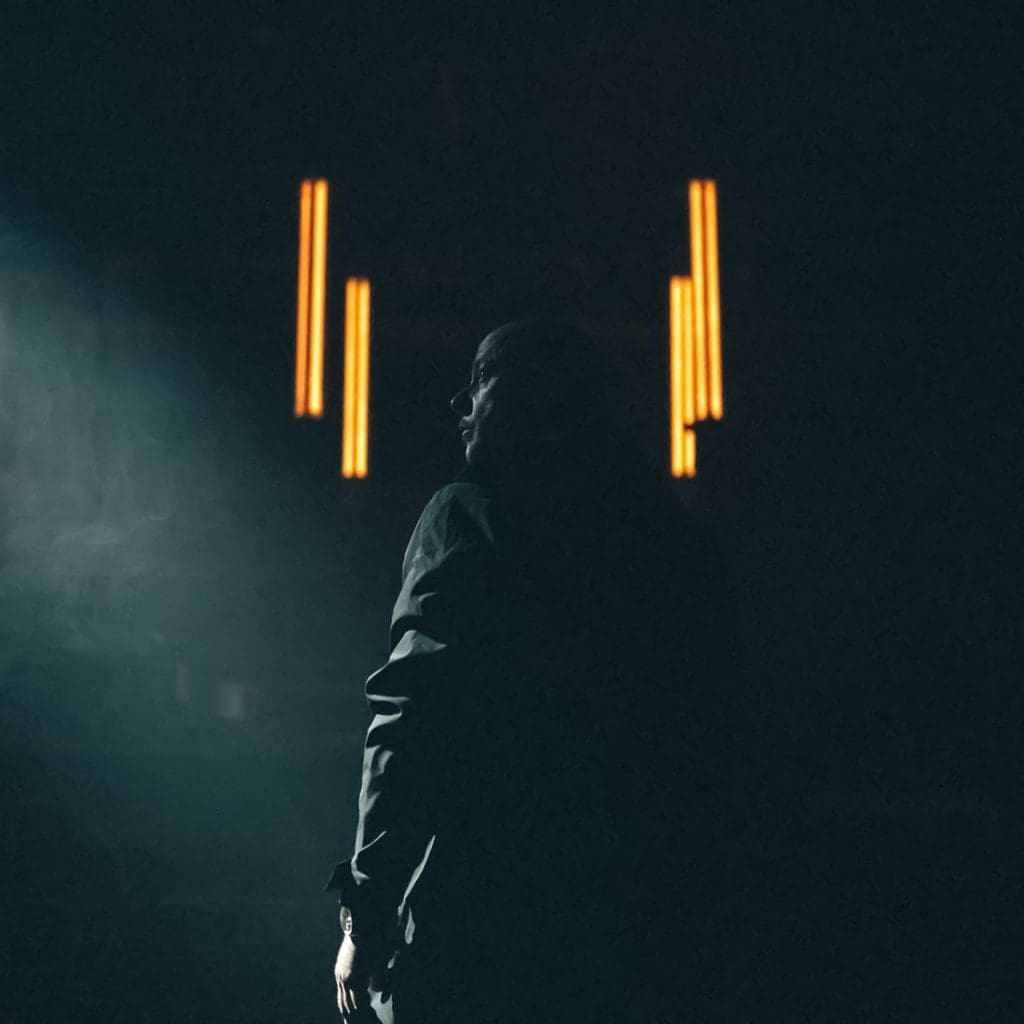

VNV Nation interview, life goes on, the world goes on
Ronan Harris from VNV Nation was in his former life the very first webmaster of Side-Line. A little known fact, but it was Ronan who gave Side-Line a first online presence, albeit on a different url and not in the format that it is now. It showed his interest in technology, something that has stayed very alive within the VNV Nation master brain over the years. It had been a while since I had spoken with him, time goes quickly, but when I was asked if we were interested in a VNV Nation interview, it was a no-brainer that this was the right time to do it now, at a time when so many things are rapidly changing in the technology field.
I phoned Ronan at his hotel in the US, and talked about the current tour, his musical sidelines, the new VNV Nation album “Electric Sun” and of course how he looks at AI being (ab)used in the music industry.
A funny anecdote, a colleague once told me – referring to the tourist guide industry she worked in – that for her “Listening to Ronan is like using the high quality infoport audioguide instead of some cheap Chinese knock-off.” It took me a bit to understand what she actually said, this is lingo for her sector, not mine, but when I looked up the device I understood her reaction. Quality.
This is just a fraction of a very long talk, but it will give you an idea of the man behind VNV Nation, his skills and his long term vision on innovation and creativity.
SL: I see the moustache is staying there.
RH: Do you want it to go? I have people still coming up to me saying, like, you have a moustache now. What was the last photograph you saw of me? I mean, I must have had hair, because I’ve had this for 13 years now (laughs). It’s just my thing. I like your beard by the way, suits you well… I’m just looking at myself thinking Jesus, I look tired. I mean, we arrived here late last night, so I’m pretty much just out of bed, so you’ll have to excuse me.
SL: You look fine Ronan. Don’t worry. So I guess you are not in Hamburg but still in the US?
RH: Still in the US, we finished up the US, the first leg of the US tour, on Sunday. It’s 11:00 in the morning here and we finished that up and then we’ve got two shows in Mexico, starting this coming weekend. We’ve got a flight and right now we’ve got five days off. Everybody went home. I’ve got five days to work. I’m working with a producer here on some tracks for them. I work with a lot of different producers and different areas, and I do a lot of work under other names because I don’t want it to be connected with VNV. I also don’t want the music that I help people with to be judged, you know, by like people going, ohh what’s the VNV connection? It should be a piece of music in its own right. So I do everything from like orchestral arranging to ambient work to all kinds of crazy processing on the laptop. The laptop I’m using to talk to you now is the one I use in my studio. So I have a whole studio with me. Like tomorrow I’m gonna be working with a guy who does some kind of dark trance, but he’s like a a big name in his own genre and then I will also be working with someone on a synth wave remix. So lots of fun. I’m telling you man.
SL: I have know for a long time you are working with different people, commercial genres or what exactly?
RH: These are really successful artists. I mean, I’ve worked with two people recently who are legendary names. I won’t say who they are. In some cases it’s a real honor because I’m working with people who’ve been an inspiration for me. I don’t see me or what I do anymore as being part of any scene. And if you look at the audience at the concerts, it’s people from so many different backgrounds and so many different styles. They all get something out of it. That’s the people who like dance music. That’s the people who like the more electronic, melodic stuff because it reminds them of other bands. People are like kind of indie electronic, you know? There’s so many different people who get something out of it and listen to it and they hear what they are looking for in it.
SL: Being well-connected is a good thing I’d say.
RH: Correct. The connection of the people I work with is so broad. I mean, here’s really weird example. I’m connected with a lot of people who work for different bands. So when we were going on this tour, I had to ask the crew from Empire of the Sun if they could help me find a bus because there’s a shortage of everything in the United States at the moment. That was the big problem we had with the first shows of the tour. We had to postpone them because there were no buses. No drivers. All the lighting companies had all their main gear rented out. You know, it’s a huge country, so you’ve got to get the logistics of trying to get a light rig from one corner of the country if it’s the only place that has it, and then get it over to Tampa, FL or something. I mean this is the distance of going from, say, Helsinki to Malta. You know, for us in Europe it’s, yeah, the logistics are insane.
SL: Is it still a result from post COVID that everybody is touring or what?
RH: COVID changed so many things. I know a lot of drivers, a lot of people involved in equipment and, you know, all kinds of things to do with touring over the years. A lot of drivers couldn’t work during the the COVID era, they went off to do other jobs. They are happy because they are getting a permanent salary, getting benefits, they were getting things they never had before, so it was a game changer. A lot of people retired and said they were sick of this. They were sick of how they’re being treated and I think a lot of change is still coming, and I hear that from a lot of people I work with that they’re tired of how they were taken for granted in the past. You do this job, that’s it. And a lot more people, I guess are thinking about themselves and how to try to get the best for themselves. So when we started planning the tour in February, we started sending out emails to companies going, hey, we want this, we want this and what can you give us? And we were also trying to find budgets that fit what we’re going to do so we can make this work. And honestly, the first thing I noticed is that a lot of companies increased their prices 30 to 50%. I don’t want this to be a financial conversation, but hey.
SL: Touring the US as a European band which VNV Nation is, is not so simple anyhow.
RH: If you’re coming from Europe and you’re going to the United States to do a tour, you have to rent a bus, You’ve gotta get the crew because there is no way to do it in a van and there’s no way to pull a whole light rig behind you. And I want to put on a show. So I’ve been doing this for a long time. I’ve been doing this for 23 years here, so I know all the aspects needed and this was really the most stressful and the toughest tour organization ever. But it worked out. Unfortunately there’s a lot of people who have become really flaky. Like they commit to you and then the last minute they pull out. You know, I’ve I’ve got another job and they don’t feel there’s anything wrong with that. There’s no commitment or loyalty in some people, so you see how it’s affected everybody. But also this, when you play concerts you realize a lot of people are still getting used to being at concerts again even though America has a COVID surge at the moment.
SL: Masks included?
RH: It’s not like the serious one we were all dealing with, you know, back in 2020. But when we played the West Coast, a lot of people were wearing masks and a lot of people won’t go out. A lot of people won’t go out like this was a really, really big thing. And we heard this from every band. We heard this from the crew who work for like urban culture meets dance meets everything kind of artists in America. There’s these two guys who have this project called Odessa, and we know a lot of the people involved with them, like the lighting engineer and some of the sound people. And then we were talking to metal bands. And they were saying that as well. It’s really crazy, like hearing from fans saying that they they’re afraid to go out. So I think we’re still in a phase where people are learning that it’s OK to go to concerts when they wear masks. It’s not. You know, anybody who reads and wants to spend some time being intelligent knows that. The mask is there to protect others, you know.
SL: Herd immunity is still not an established mentality.
RH: Masks are not a bulletproof vest. I mean, life goes on, the world goes on. And the other thing that we noticed on these shows was when we played the first show in Detroit, that’s where we had to start because that was the 1st place we could get every element we needed for the tour, is that everybody’s out on tour, like all the big bands. They’re all out on tour and taking up all the buses, all the drivers, what’s left and all of the resources. We were talking to lighting companies we’ve worked with for years and they were saying they’ve got nothing we were looking for. They just have some really old lights and I said, well give us something, we’ll put it together, you know. The Detroit show was fine, we talked to a lot of people after the show and everybody just seemed grateful.
SL: At least some joy…
RH: There’s a lot of negativity. It’s not just COVID, it’s the economy here and this perpetual political bullshit that they have to put up with every day. You know, we have a little taste of it in Europe. They’re living it like on levels I’ve never seen. It’s absolutely insane. So I feel for them. But every single concept we played was exactly the same. People were so appreciative that they got to go out and feel this live experience again. So it was quite an eye opening experience.
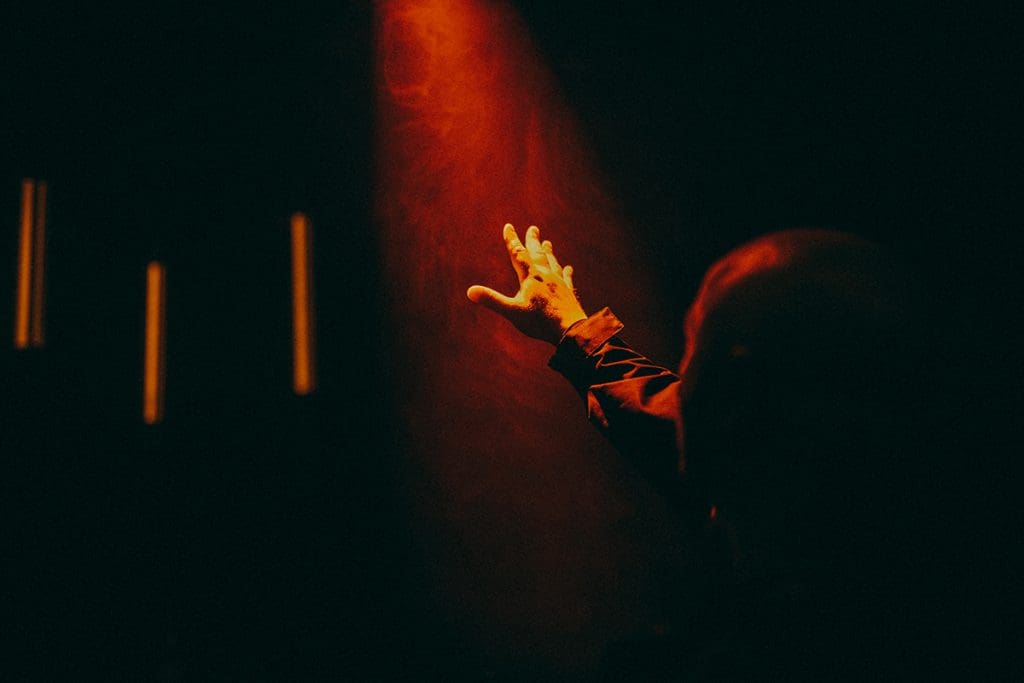

SL: Talking about working on different projects, did you never work on a musical?
RH: Uh, yeah, I did. Not a ‘musical’ like you’ll imagine. I worked on an arts project with somebody who combined a lot of different elements and wanted to make something really creative. I create the video elements in the background for some other projects too. I’ve had people who wanted video work done where they have a gigantic wall and they want elements playing that are part of that show that become a like scenes within the whole landscape. I’ve done that. I’ve done a lot of sound treatments and created backgrounds, sounds and elements for them, or even pieces of music. So musical? Yes but not the commercial Broadway, you know like “Full Metal Jacket, the musical” or something. These kinds of bullshit things that people put together.
I hate commercial projects. I’ll be honest with you. I mean, still to this day I can’t listen to commercial music, even if it could be a really nice song. There’s always a part of me that thinks this was created to be a hit for a big company that’s purely about shareholders and money. The artist will always be told what to do, in what way. I have a lot of friends who work in Hollywood and they have great artistic ambitions. And then they talk about how their work is then taken, changed by a long line of anonymous people. Or someone else gets credit for it. So I try to work with people who are doing underground things. There’s a lot of people who ask, can I use a piece of music for like for a video or something? And it’s not profit. I’m happy to support small creative people because that’s what I was, you know.
SL: But is that also the aim with the VNV Nation studio you have in Hamburg?
RH: I’ve used it a lot because I have the resources of all the equipment. If you want to talk technologically with two very, very experienced people in trying to recreate that on the system, I can bring it with me around the world, so. We’ve managed to set something up because I’m gonna do work. As I said, tomorrow and the day after I’m working with another guy where I can bring pretty much my studio with me, full audio interface, everything. I can have 10 microphones running, and I can produce, I have everything I need. That’s a real miracle. I’m telling you, man. But when I do a lot of my work, it’s basically when I’m back in Germany and I can do my demos and ideas on the laptop and then take them into the studio and flush them into something bigger.
SL: A couple of years back I was at the Mute event at the Roundhouse in London and during a session with Pole I told him that if you’re really working indie, then the really small bands have no budget for studios. And actually, you hear it, there’s a lot of subpar material being released.
RH: There are a lot of people who want to in a band. Yeah. This is something I noticed when I had to rent a studio space for myself. Now as far as the studio goes, if I’m going to finish an album or if I’m going to create an album, there’s a lot of equipment. It’s gotta go somewhere and it’s not going in my basements because I don’t have a basement. So I’m not gonna fill up a bedroom and annoy my neighbors with this. I have to work in a way that I can be there at four or five in the morning. What I found was when I rented a room in a studio, a commercial studio, and these guys were doing really amazing work, because they were not working with big name artists, but people who wanted music for a project. Really, very, very creative stuff.
But when I met some of the young bands, it’s suddenly clicked that there’s a lot of people who hear a band in this genre, or they go to a club and they say let’s be a band. That’s kind of an exciting fantasy, you know? They’ve got the logo. They’ve got the photos, they got the name of the band and they haven’t got a song yet. They have no idea and they get in there and it’s like we want to sound like this band and they tell a producer like as if you’re saying to someone please help me, I wanna sound like this. It just doesn’t work like that. So I find that a lot of people I meet want to be in a band. I made music. I was writing songs and I really wanted to take this to the next level. And when you say about subpar, I think one of the miracles is that we all have the technology to do whatever we want. With our laptops. With our computers. But that also means that 99.999% have never bothered to learn how any of these tools work. You know, one of the reasons why I did “Matter + Form” in 2005 with a producer, it was because I was gonna get to learn some stuff. By doing every album, I had to learn more about production.
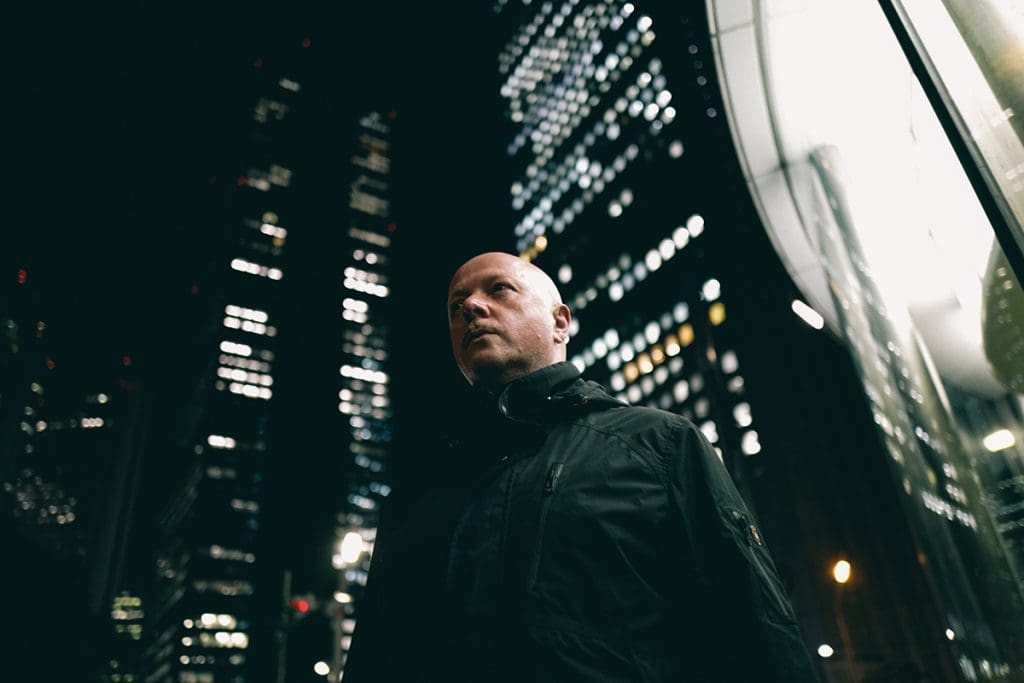

SL: What about your older VNV Nation recordings, how do you look at those now?
RH: I can’t listen sometimes to my older stuff because it was recorded on a budget. I mean, you know, “Empires” and “Futureperfect” were recorded with almost no money. In a very basic studio. I made “Futureperfect” with just the computer. “Empires” or “Praise the Fallen” were recorded in basements with a simple console and the guy knew how it worked, but the quality that was possible with the equipment was, you know, it wasn’t fantastic. But yet today you can listen to let’s say bullshit like EDM, which is just commercial loop crap. Whatever. The production techniques which they use are not like a choice. You have to do it or no one’s gonna listen to it, so. In that sense, the tools are there. People can use them if they want to create something better.
But I’m hearing even within, as you say, like the scene, – I don’t even know what the scene is anymore because it seems to be more fragmented musically than ever – but people really are trying to apply the knowledge of other genres. And this is just basic studio knowledge. And one of the things I did during COVID was that I closed myself in, myself and my partner and I said, look, we’re gonna look after ourselves and our close ones and our loved ones. And we will use it as a time of learning. I listen to a lot of music I would never listen to. And I mean, it really expanded my knowledge of music. But I found all kinds of crazy shit online, and I loved it.
But I spent a lot of time learning better techniques and I wanted to do that because I’ve always had these sounds in my head or these unfinished ideas. Because for one reason or another, I have never felt that I reached it. I can listen to the track “Electric Sun” and think, how did I make this? It was an incredible experience and also during COVID building my own studio with other companies who could not coordinate times because nobody could schedule anything, they all said that their guys were on furlough. The Germans called it quits, and they said we don’t have enough people. So I’m sitting there with just these framework walls thinking what the fuck am I going to do? It was a really long process. But it was also very beneficial. At the time I had about 85 songs, because when you’re working on something else, you get the best ideas. It’s like a part of your brain wants to stay active to fill in for the boredom. I have a synthesizer on my phone and I’m just constantly recording myself playing all these melodies that I’m hearing. I also was using my laptop, even just to write a demo, using the physical keyboard on the laptop as musical keys. 4 songs on the album were originally recorded like that. I was just sitting there playing like OK, this key is this, this key is this. You strip away all of the big technology and you come right down to the sense of it. Is it a good song? Does it work?
SL: I recognized more developed orchestral arrangements this time, I guess the orchestral VNV Nation album left an influence?
RH: Yeah, you can’t hide it, let’s say. I’ve always had orchestral elements in the albums anyhow. There was a cinematic element to that album, a cinematic flavour. I wrote a lot of pieces for it, which never ended up on the album. There were about maybe 27 songs I picked for it. And the worst part is that you come down to a list of, say, 14 or 15 songs. And I said, let’s finish as many as we can, but you’ll always end up writing new tracks while you’re doing an album. I mean, “When is the Future?” happened out of nowhere. One night, I was bored in the studio and I was going through really old tracks and I found a track that I wrote in 2007. It’s just the bass progression and the vocal line. That’s all it is and I pulled it up and had some sounds on the keyboard and just started playing it because it stuck in my head. It was the right moment. You know when you hear it and you think, OK, it’s a simple chord progression, but it works. “All our sins” for instance is astonishingly orchestral. Even if you’re playing synthesizer sounds, you’re approaching them to create an orchestral feeling. So it was quite cinematic. Even the arpeggios and the way I was doing the arpeggios on “When it’s the Future?” are based on a piece of classical music I like.
I work with four different arrangers and they can actually tell there’s more an orchestral approach in my music than what they’re used to with other artists. With other albums it was the same. I mean with “Of Faith, Power and Glory” there were still huge amounts of orchestral elements in there. It’s what you assumed to be orchestral, because you can do a track like something more experimental and you’re still channelling something you heard from Stockhausen or Stravinsky and nobody understands that. Or you’re taking a little element of a composer no one’s heard of in the the average everyday world. But then that’s just one element of my influences.
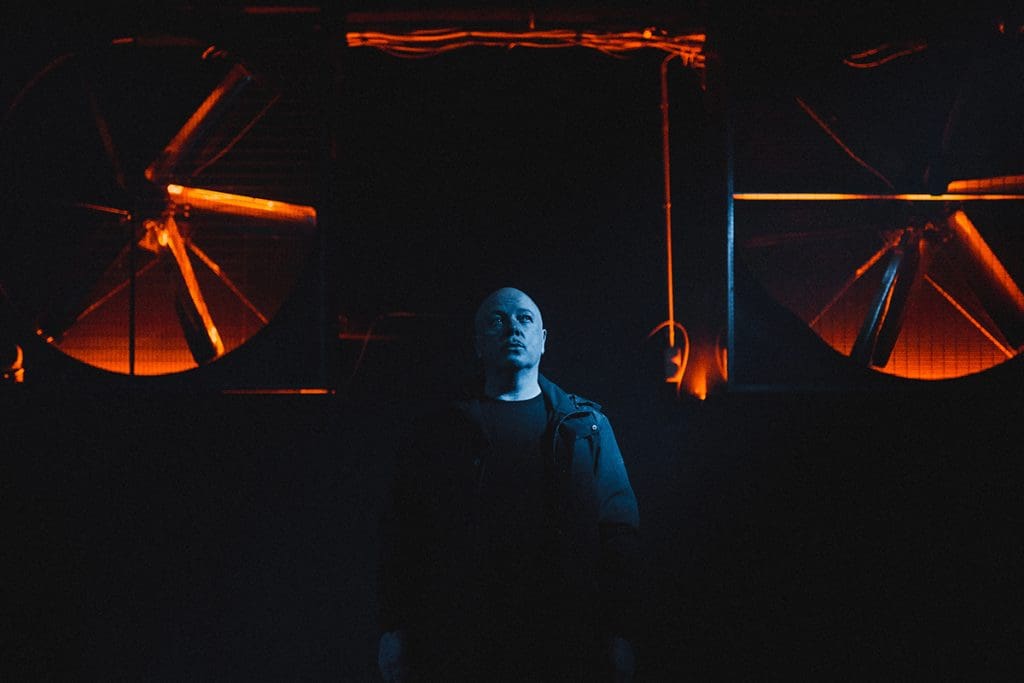

But on “Electric Sun”, I wanted the opening to be like the opening to a film and I originally had a whole orchestration piece for the opening of the album that I just took out. “Electric Sun” does the job because in the end I want the album to tell a story from beginning to end. That’s what I was asking people to do, to listen to it from start to finish. It was the opening of a film for me, and the ending of the album was the finale, the last credits appearing on the screen. Everything in between is the elements of the story that I imagined. I felt this time round that in the studio I had all the things, all the tools I needed, the atmosphere. Also, a studio shuts out the outside world.
So it’s just you, the walls, synthesizers you bring in to used. I went crazy with analogue synthesizers I have. I’m kind of like an obsessive, I’ve been collecting synthesizers since I first got a chance to buy one. I still have two synthesizers that I owned in the 80s. I’ve had them repaired numerous times because they’ve been overused. Synthesizers are used on all the old albums. They’re still there on every album. There were always about four or five analogue synthesizers being used for most of the sounds on the album. So this time I really went crazy on it. I wanted this vibe. It’s really hard to explain to somebody when you use a plugin what the difference is. And the difference is that when you put all the elements together, you will hear this great kind of feeling. The opposite argument to that is that there are some amazing albums that have been recorded by bands – that we have a great sentimental attachment to – that used a four track.
SL: The one doesn’t exclude the other, right?
RH: Of course. And the thing is now with all this technology, you’re listening to copy paste bullshit. It’s like, look, do you have an idea? Focus on your idea, then build around that. Try to do the best you can because you’ll hear the idea through it. But if it’s just an ensemble of random sounds for 30 seconds of pleasure in a club to make everyone think, ohh, this is a bit ‘oonzee’, it’s not achieving much. It’s throw-away and that’s a kind of like a sad factor for the iPad generation who grew up playing with simple things at home and it was just push a button, make a sound and they didn’t learn more than that. I can’t say if I need the whole studio or not. One of my idols is a mixer called Andrew Scheps. His philosophy and his approach to mixing… I just love hearing him talk because he talks about so many aspects of of the audio world.
He’s an icon and he has mixed some of the biggest albums of all time and he says he’s in the box now, meaning he just uses a computer. And he has many videos where he talks about it because there will be people who just want that connection with the old world and they think it sounds better or whatever. And he said it doesn’t. It doesn’t. It doesn’t. If you know, how to use the tool so you can make it sound how you want. But if you need the tools, if you need the physical things, then if that’s what gets you the results, then that’s the right tool for you. My idea was, OK, do you have a mouse? You have one finger. That’s it. So you have all of this equipment and you’re gonna use one finger to write an album? Are you kidding me? That’s like the joke I always make, it’s like painting the hallway of a house, but doing it from outside the front door and you’re painting through the letterbox.
SL: We’ve become so normalized to this I guess…
RH: When you’re doing these big constructions and you’ve got all this software and all these plugins, you have to have better controllers and things like that. I was sitting with some of the synthesisers and just playing with controls and just creating, it got me places that I never have been. I forgot in a lot of ways what that felt like. Yeah, I mean, I’ve always seen synthesizers on the albums, but this time I had a lot of new gear because of building a new studio and I wanted to have this connection. I know the guys who work for Sequential Circuits, you know, in San Francisco. One of them was a guy who booked our first concert in San Francisco. We were talking about new synthesizers and he said ohh, we have a great new one. When I did for example, the album “Praise the Fallen” I used this old sequential synthesizer on every track. I mean, I had only had a few synthesizers, so I had to make them work for me on every single song.
So I got this new synthesizer, which is like the third generation of that thing. It’s the brand new one, wonderful, does everything. And I said to my partner, like, I’m just gonna plug it in and I’m just gonna listen to some of the sounds, get my headphones on. I’ll be in bed in 1/2 an hour. You know, that was 11:00 at night, 5:00 in the morning I went to bed. I just fell in love. There’s something that connects you with this technology. The sounds, the way you control things, the way you play with it. You can control everything and play with the sounds. It’s the person and a machine. So I programmed about three banks of sounds for the thing, and I’m just having the best fun. And that’s what became like a lot of the basis, a lot of the background to a lot of sounds on the album. This organic sound gave everything a kind of a 70s vibe. There are so many incredible electronic artists from the 70s. I went back and started listening to NEU! again. I love a lot of old krautrock. There’s so many eras that we forget about. They’re so relevant that you can listen to them today and think, why am I not listening to this?
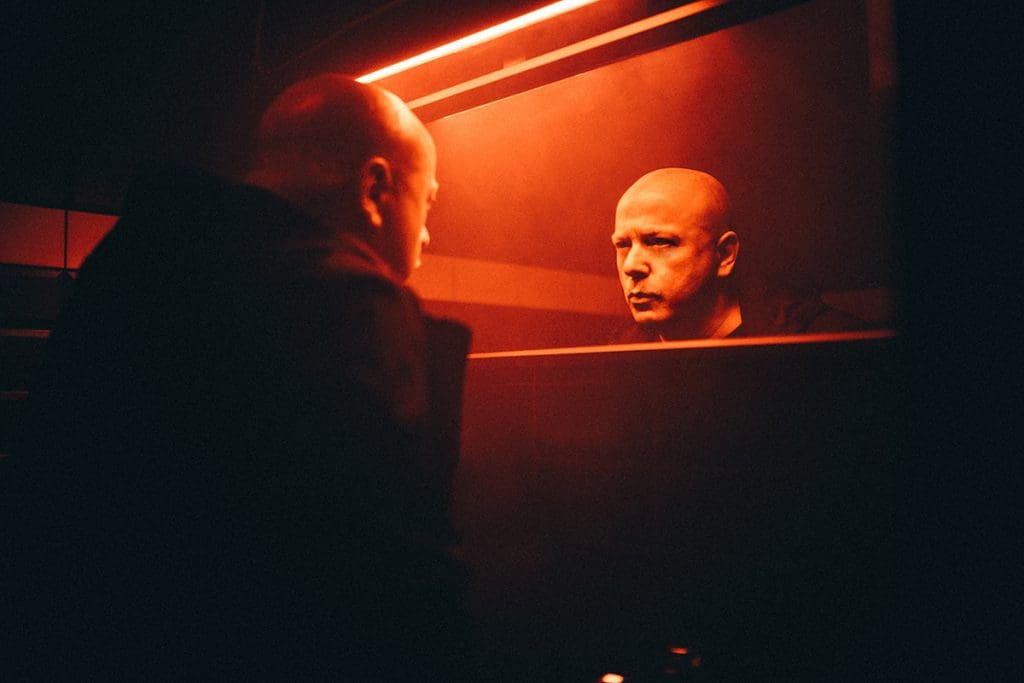

SL: I know you’ve always been quite interested in everything that is new technologically, whether it is for social media or whatever. You’ve always been interested. Now, professionally I work a lot with AI.
RH: You know my old job, so you know that I’m heavily involved into all this new tech.
SL: That’s why I’m asking. What is commercially available now doesn’t impress me compared to what I’ve seen in laboratories where they experiment with AI as far as music goes. That really does impress me. So I wonder, would it ever come up into your mind first of all to create an AI generated album using the laboratory stuff? Do you see anything that you would use as a musician? And would you ever consider using it for vocals as well?
RH: Here’s my problem with with generated music right now, we’ll start using it like people used mp3.com. I’ll give you just that as a simple example. People loaded it with shit. There was no way to listen to most of it. We’re gonna have exactly the same problem with AI because it’s going to be companies trying to sell you tools that say ‘hey look make your own track’. And I work with a lot of producers, there’s guys in the building where my studio is, and they all wwork ith loops. It’s cut and paste. Someone else is making loops for them. They don’t know who, but they’re just using the same loops everyone else is using. I think that’s boring. One of two things will happen. There will either be a backlash where you’ll have people posting on their album ‘This was made by humans completely organically’.
The possibilities of laboratory AI where it can sing. Yeah, we use tools right now. We use Photoshop and we use tuning, we use like ways to compress the vocals and EQ. We’re using tools as it is. It’s where the line is. I don’t want fake. I mean if somebody can use it when they are a Picasso and where they describe to a computer this wonderful creativity, then you’re using it as a tool, then I’m OK with it. But if someone is basically learning a computer ‘just write me a hit song’ then you’re David Guetta, you know that that doesn’t interest me at all.
I’ve had people offering me so many AI tools or generators. I don’t need core generators. For instance, the band had so much problems even just practicing the track “Invictus” on the album, because they said it’s incredibly complicated. I’m working with people who are really, really good, very professional keyboarders. I think I could do a lot myself, but what I would like to be able to do is to say, can you save me a lot of the grunt work that I don’t want to do so I can just focus on the ideas. That’s where it is gonna matter. I want my own ideas to be the forefront. You and I both know that all technology will be used by people to make bullshit. When the Apple iPhone came out, do you know how many fart apps there were? You know that’s how humans use it. They are stupid, puerile, childish. It’s funny for about 5 seconds and then after that it’s done.
Since you’re here …
… we have a small favour to ask. More people are reading Side-Line Magazine than ever but advertising revenues across the media are falling fast. Unlike many news organisations, we haven’t put up a paywall – we want to keep our journalism as open as we can - and we refuse to add annoying advertising. So you can see why we need to ask for your help.
Side-Line’s independent journalism takes a lot of time, money and hard work to produce. But we do it because we want to push the artists we like and who are equally fighting to survive.
If everyone who reads our reporting, who likes it, helps fund it, our future would be much more secure. For as little as 5 US$, you can support Side-Line Magazine – and it only takes a minute. Thank you.
The donations are safely powered by Paypal.

